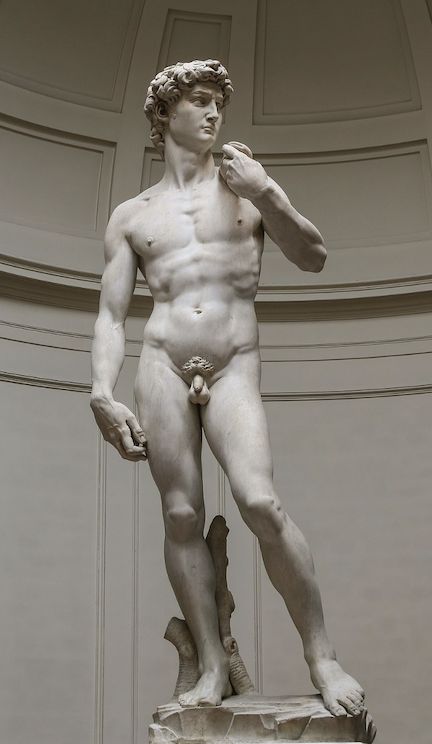The Plateau of Latent Potential
Author and self-help guru, James Clear, has this to say about building good habits (and the frustrations that can come in the process):
Imagine that you have an ice cube sitting on the table in front of you. The room is cold and you can see your breath. It is currently twenty-five degrees. Ever so slowly, the room begins to heat up. Twenty-six degrees. Twenty-seven. Twenty-eight. The ice cube is still sitting on the table in front of you. Twenty-nine degrees. Thirty. Thirty-one. Still, nothing has happened. Then, thirty-two degrees. The ice begins to melt. A one-degree shift, seemingly no different from the temperature increases before it, has unlocked a huge change. Breakthrough moments are often the result of many previous actions, which build up the potential required to unleash a major change. This pattern shows up everywhere. Cancer spends 80 percent of its life undetectable, then takes over the body in months. Bamboo can barely be seen for the first five years as it builds extensive root systems underground before exploding ninety feet into the air within six weeks. Similarly, habits often appear to make no difference until you cross a critical threshold and unlock a new level of performance.

The time between our first efforts to developed a new, healthy habit or spiritual discipline, and the time when we feel we've finally attained a measure of success, can seem interminable. It is in this time of "try and try again" that many of us simply give up. This is what Clear calls The Valley of Dissappointment.
You expect to make progress in a linear fashion and it’s frustrating how ineffective changes can seem during the first days, weeks, and even months. It doesn’t feel like you are going anywhere. It’s a hallmark of any compounding process: the most powerful outcomes are delayed. This is one of the core reasons why it is so hard to build habits that last. People make a few small changes, fail to see a tangible result, and decide to stop. You think, “I’ve been running every day for a month, so why can’t I see any change in my body?” Once this kind of thinking takes over, it’s easy to let good habits fall by the wayside. But in order to make a meaningful difference, habits need to persist long enough to break through this plateau—what I call the Plateau of Latent Potential.
The Plateau of Latent Potential ... what a concept! Instead of a mountaintop, you only see a dead, dry plateau. But this is the time to resolve to stay in the struggle! Why?
Complaining about not achieving success despite working hard is like complaining about an ice cube not melting when you heated it from twenty-five to thirty-one degrees. Your work was not wasted; it is just being stored. All the action happens at thirty-two degrees. When you finally break through the Plateau of Latent Potential, people will call it an overnight success. The outside world only sees the most dramatic event rather than all that preceded it. But you know that it’s the work you did long ago —when it seemed that you weren’t making any progress—that makes the jump today possible.
It's been accurately said that spiritual growth is not a sprint, but a marathon. God calls us to "put off" old ways and habits, and "put on" new ones instead (Ephesians 4:22-24). It is a long and arduous process, given to much frustration and dissapointment. But we are called to "not grow weary" in our efforts (Galatians 6:9).
Spiritual growth, health, and effectiveness are all waiting for us (regardless of how it is expressed through our personal spiritual gifts and abilities). But to attain it, we must not give up hope and endurance atop the Plateua of Potential and risk slipping into the Valley of Dissapointment.
Stay strong. Growth and spiritual maturity is NOT beyond your grasp. Like Paul, we must resolve to "press on toward the goal for the prize of the upward call of God in Christ Jesus" (Philippians 3:14, ESV).
As James Clear concludes, "Change can take years—before it happens all at once."
"Therefore, since we are surrounded by such a huge crowd of witnesses to the life of faith, let us strip off every weight that slows us down, especially the sin that so easily trips us up. And let us run with endurance the race God has set before us" (Hebrews 12:1, NLT).
The Masterpiece Already Exists
In the early 16th century, Michelangelo, one of the greatest artists of all time, was presented with a massive block of marble that other sculptors had deemed worthless. This marble, originally quarried in Carrara, was considered of poor quality due to its thinness and imperfections, like holes and veins. It was deemed too flawed, too difficult to work with, and thus was abandoned by two previous sculptors who attempted to use it.
Yet, Michelangelo saw something different in it. He saw the potential for greatness.
Despite these challenges, Michelangelo transformed the flawed marble into one of the most celebrated masterpieces in history. His ability to work with the material's limitations and create such a stunning sculpture is a testament to his genius and skill.

It all stemmed from his general artistic philosophy when approaching a new block of marble:
"The sculpture is already complete within the marble block, before I start my work. It is already there, I just have to chisel away the superfluous material."
It is variously (and perhaps anectodaly) reported that when asked about this particular magnificent statue, Michelangelo famously said, “I saw David in the marble and removed everything that was not David.”
This story beautifully parallels the message of John 15, where Jesus describes God as the gardener and His followers as the branches of a vine.
Just as Michelangelo removed the unnecessary marble to reveal the masterpiece within, God prunes His followers, cutting away the aspects of our lives that do not bear fruit. This pruning, though perhaps painful at times, is done out of love and with a vision of our potential in Him. It is not the removal of what is merely unwanted, but rather what is unneeded, allowing for growth and the revelation of our true beauty and purpose in Christ. As Scripture affirms in John 15:1-2:
I am the true vine, and my Father is the gardener. He cuts away every branch of mine that doesn't produce fruit. But he trims clean every branch that does produce fruit, so that it will produce even more fruit.
Afterall, we are created in His image. He fully sees the masterpiece which lies within each of us. And, like David, when He peers into our potential and completes His divine pruning, He can likewise proclaim, “I saw [a masterpiece] in the marble and removed everything that was not [in keeping with My image].”
"And we all, who with unveiled faces contemplate the Lord’s glory, are being transformed into his image with ever-increasing glory, which comes from the Lord, who is the Spirit" (2 Corinthians 3:18, NIV).
"For those whom he foreknew he also predestined to be conformed to the image of his Son ..." (Romans 8:29, NIV).
"And just as we have borne the image of the earthly man, so shall we bear the image of the heavenly man" (1 Corinthians 15:49, NIV).
Counterfeit Giftedness
In the year 1880, there was a painter in America named Emmanuel Ningger.
One day, Ningger went to a wholesale store to buy all the basic necessities for his family. Ningger brought lunch from home and $20.
All the items were already in Ningger's shopping basket, and then he approached the cashier to pay. The cashier accepted the $20 and gave change to Ningger.
What happened next was that the cashier's hands became sweaty. Then he noticed streaks and lines on his hands when he held the $20 given by Ningger.
He reported it to his manager, and the manager called a police officer who identified that the $20 bill was undoubtedly counterfeit. The police immediately went to Ningger's house and arrested the counterfeiter.
What's astonishing is that during the police investigation, they found that Ningger had forged the $20 bill by painting it with his own hands! The result was extraordinary, exactly the same!
Had it not been for the "bleeding" paint, he might never have been caught.
Interestingly, while searching his property, the police discovered three paintings in Ningger's workshop that, if sold, would have been worth no less than $5000!

*Actual image of a Ningger $100 note.
Isn't it ironic? Ningger needed only to invest the same amount of time and talent to paint his counterfeit $20 bills as to create paintings worth $5000 or more. Same investment but very different values and outcomes.
He was a $5000 calibre painter, but, unfortunately, he was unable to see or tap into the value of his own talent and potential.
Scripture is clear:
"Every good gift and every perfect gift is from above, coming down from the Father of lights ... " (James 1:17, NIV).
And as God has distributed His gifts to us, He expects us to use them for both the good of others, and for His glory.
"As each has received a gift, use it to serve one another, as good stewards of God's varied grace ..." (1 Peter 4:10, ESV).
"Having gifts that differ according to the grace given to us, let us use them: if prophecy, in proportion to our faith; if service, in our serving; the one who teaches, in his teaching; the one who exhorts, in his exhortation; the one who contributes, in generosity; the one who leads, with zeal; the one who does acts of mercy, with cheerfulness" (Romans 12:6-8, ESV).
"And whatever you do, whether in word or deed, do it all in the name of the Lord Jesus, giving thanks to God the Father through him. ... Whatever you do, work at it with all your heart, as working for the Lord, not for human masters, since you know that you will receive an inheritance from the Lord as a reward. It is the Lord Christ you are serving" (Colossians 3:17, 23-24, NIV).
Yet all too often, either by virtue of our own spiritual blindness (or even spiritual laziness) we fail to recognize the giftedness the Lord implanted within us. In shortsightedness, we squandor His blessings.
We are inherently valuable, yet we'd rather settle for a petty counterfeit version of our giftedness than tap into the true talent (both spiritual and otherwise) that God has lavished upon us.
Why be a Ningger when you can be a Michaelangelo?!